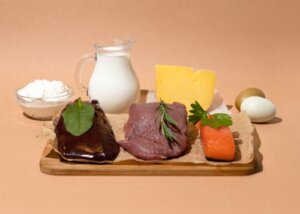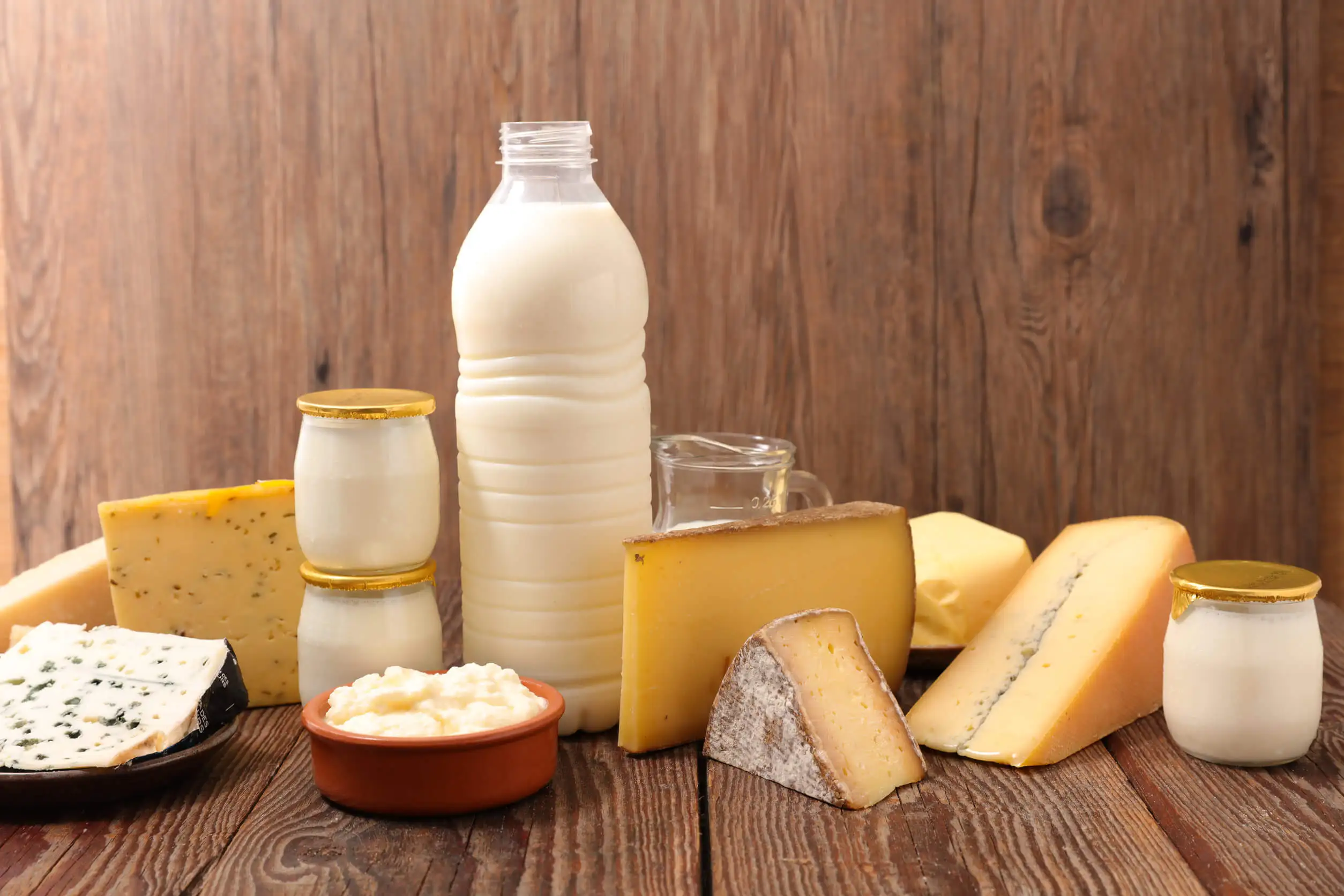Vitamin B2 Deficiency: What Are the Consequences?


Written and verified by the nutritionist Saúl Sánchez Arias
Aryboflavinosis or vitamin B2 deficiency is a rare problem, but it can significantly affect your health. Symptoms are related to a sore throat, and lesions may appear on the lips and oral mucosa. It’s also possible to experience seborrheic dermatitis and even anemia.
In the context of a varied diet, it’s difficult to develop a pathology of this type, since most foods of animal origin contain vitamin B2. In fact, it’s a nutrient that isn’t usually supplemented, unless multivitamins are consumed.
Why does vitamin b2 deficiency occur?
Vitamin B2 deficiency occurs when the intake of cereals, dairy, or animal products becomes insufficient. However, it’s possible that a situation of diarrhea may cause a loss of the nutrient, which will reduce the levels of the nutrient in the body.
Even chronic heavy alcohol consumption could be one of the main risk factors. After all, the substance functions as a diuretic, which could lead to a loss of the vitamin in the urine.
Symptoms
Generally speaking, symptoms usually appear quickly and involve paleness and maceration of the mucous membranes in the corners of the mouth. A yeast infection may develop in this context and may also cause changes on the surface of the tongue.

Diagnosis
To confirm the problem, urinary riboflavin excretion is usually measured. In this way, the pathology can be diagnosed.
It’s then necessary to prescribe supplementation or even intramuscular administration of the nutrient in the most severe cases. It’s usually resolved with 5 or 10 milligrams of the vitamin orally, once a day.
For more information: Complex B Vitamins: Characteristics, Benefits, and Functions
What’s the function of riboflavin (vitamin B2)?
It’s important to understand that riboflavin has several functions within the body. It participates in many different physiological reactions.
In fact, it creates an antioxidant and anti-inflammatory effect that can help prevent premature aging and the creation of chronic and complex pathologies. This is evidenced by research published in the International Journal of Molecular Sciences.
However, as with most water-soluble vitamins, there are no deposits of this vitamin in the body. You must make sure you consume it daily in sufficient quantities.
However, this isn’t usually a problem, provided that a varied diet is followed. In the case of vegan diets, it isn’t a frequent deficit either. However, there’s usually an inadequate intake of vitamin B12 associated with vegetarianism, as confirmed by a study published in American Family Physician.
Get to know more: How to Know if You Have a Vitamin B12 deficiency
What foods have the highest vitamin B2 content?
Dairy products are one of the main sources of riboflavin. But so are eggs, nuts, beef liver, pork loin, and beef.
These foods are all considered to be nutritionally dense. They have many vitamins, minerals, and high quality proteins. Fruits and vegetables include spinach, peas, and mushrooms.
However, it should be emphasized that B2 requirements may vary throughout life. While infants usually require about half a milligram per day, adults require more than 1 gram per day.

Ariboflavinosis is a rare problem
Ariboflavinosis is a rare problem caused by an insufficient intake of vitamin B2. This nutrient has several functions within the body, also participating in energy metabolism and in the communication of the central nervous system.
Nutritional needs should always be supplemented through food. In certain situations, supplements can be included to satisfy a higher intake, but this isn’t ideal. You should always consume products from different groups in order to cover the recommended daily amounts of vitamins and minerals.
All cited sources were thoroughly reviewed by our team to ensure their quality, reliability, currency, and validity. The bibliography of this article was considered reliable and of academic or scientific accuracy.
- Suwannasom N, Kao I, Pruß A, Georgieva R, Bäumler H. Riboflavin: The Health Benefits of a Forgotten Natural Vitamin. Int J Mol Sci. 2020;21(3):950. Published 2020 Jan 31. doi:10.3390/ijms21030950
- Langan RC, Goodbred AJ. Vitamin B12 Deficiency: Recognition and Management. Am Fam Physician. 2017;96(6):384-389.
This text is provided for informational purposes only and does not replace consultation with a professional. If in doubt, consult your specialist.








